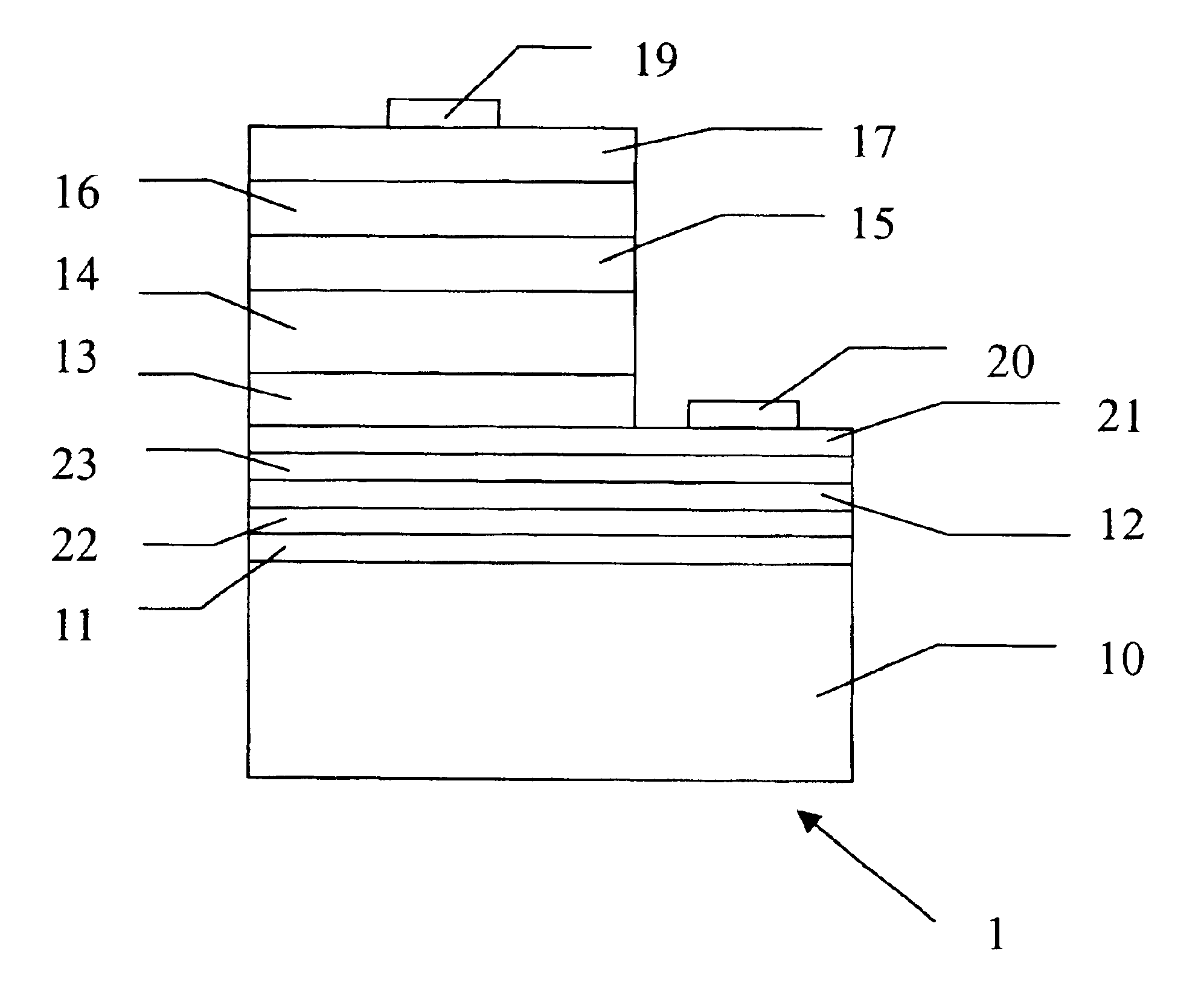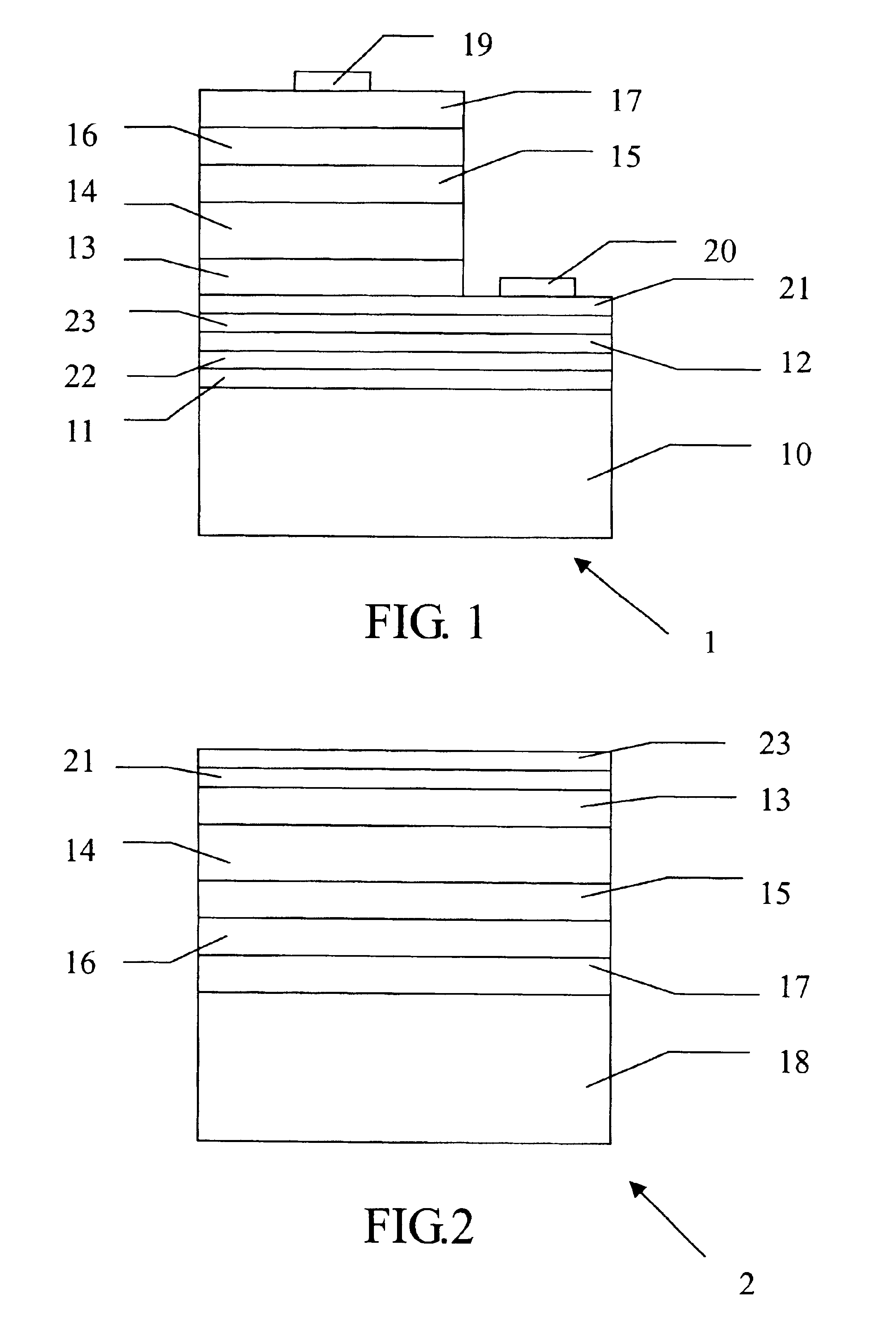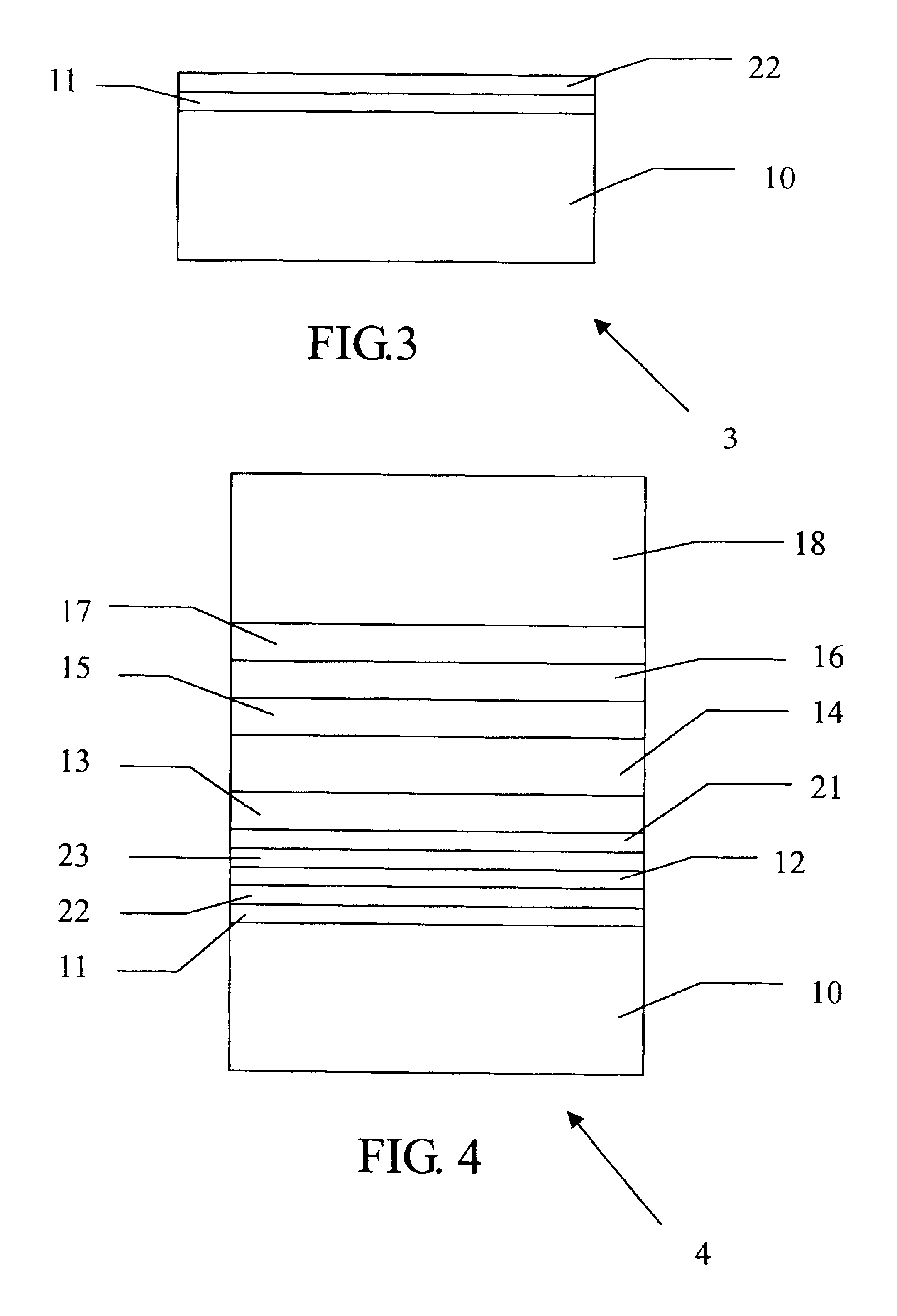Light emitting diode having an adhesive layer and a reflective layer
a light emitting diode and reflective technology, applied in the field can solve the problems of low light emitting efficiency of led, insufficient bonding effect, and reduced brightness of led, so as to improve mechanical strength, increase the brightness of light emitting diodes, and enhance bonding forces
- Summary
- Abstract
- Description
- Claims
- Application Information
AI Technical Summary
Benefits of technology
Problems solved by technology
Method used
Image
Examples
Embodiment Construction
[0026]Referring to FIG. 1, a light emitting diode having an adhesive layer and a reflective layer 1 in accordance with a preferred embodiment of the invention comprises a second substrate 10, a reflective metal layer 11 formed on the second substrate 10, a first reaction layer 22 formed on the reflective metal layer 11, a transparent adhesive layer 12 formed on the first reaction layer 22, a second reaction layer 23 formed on the transparent adhesive layer 12, a transparent conductive layer 21 formed on the second reaction layer 23, wherein the upper surface of the transparent conductive layer 21 consists of a first surface area and a second surface area. A first contact layer 13 is formed on the first surface area. A first cladding layer 14 is formed on the first contact layer 13. An active layer 15 is formed on the first cladding layer 14. A second cladding layer 16 is formed on the active layer 15. A second contact layer 17 is formed on the second cladding layer 16. A first elect...
PUM
 Login to View More
Login to View More Abstract
Description
Claims
Application Information
 Login to View More
Login to View More - R&D
- Intellectual Property
- Life Sciences
- Materials
- Tech Scout
- Unparalleled Data Quality
- Higher Quality Content
- 60% Fewer Hallucinations
Browse by: Latest US Patents, China's latest patents, Technical Efficacy Thesaurus, Application Domain, Technology Topic, Popular Technical Reports.
© 2025 PatSnap. All rights reserved.Legal|Privacy policy|Modern Slavery Act Transparency Statement|Sitemap|About US| Contact US: help@patsnap.com



